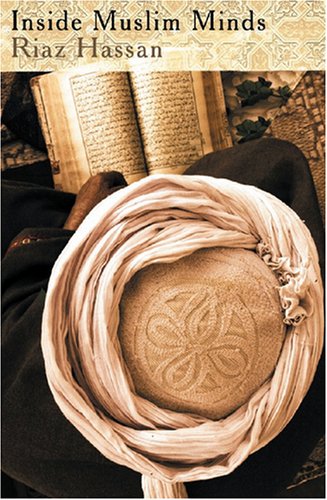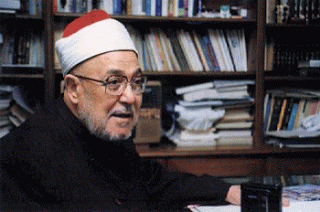 Continuing from Muslim Nations and the Rise of Modern Barbarism . . . .
Continuing from Muslim Nations and the Rise of Modern Barbarism . . . .
According to Abou El Fadl, characteristic features of salafabism (combination of salafism and wahhabism) include the following:
- a profound alienation from institutions of power in the modern world and from Islamic heritage and tradition
- a supremacist puritanism that compensates for feelings of defeatism, disempowerment and alienation
- a belief in the self-sufficiency of Islamic doctrines and a sense of self-righteous arrogance vis-a-vis the ‘other’
- the prevalence of patriarchal, misogynist and exclusionary orientations, and an abnormal obsession with the seductive power of women
- the rejection of critical appraisals of Islamic traditions and Muslim discourses
- the denial of universal moral values and rejection of the indeterminacy of the modern world
- use of Islamic texts as the supreme regulator of social life and society
- literalist, anti-rational and anti-interpretive approaches to religious texts.
(Hassan, Inside Muslim Minds, p. 46, my own formatting and bolding in all quotations)
There is little room for me to go beyond Hassan’s own outline of El Fadl’s account:
Salafabism has anchored itself in the security of Islamic texts. These texts are also exploited by a select class of readers to affirm their reactionary power. Unlike apologists who sought to prove Islam’s compatibility with Western institutions, salafabists define Islam as the antithesis of the West. They argue that colonialism ingrained in Muslims a lack of self-pride and feelings of inferiority.
For salafabists, there are only two paths in life: the path of God (the straight path) and the path of Satan (the crooked path): The straight path is anchored in divine law, which is to be obeyed and which is never to be argued with, diluted or denied through the application of humanistic or philosophical discourses. Salafabists argue that, by attempting to integrate and co-opt Western ideas such as feminism, democracy or human rights, Muslims have deviated from the straight to the crooked path. (pp. 46-47)
And it gets worse . . . .
In arguing thus, they exaggerate the role of the texts and minimize the role of the human agent who interprets them. In the salafabist paradigm, the subjectivities of the interpreting agents are irrelevant to the realization and implementation of the divine commands contained in the text. In this paradigm, such public interests as protecting society from the sexual lure of women can be verified empirically and must be protected. In contrast, moral, ethical and aesthetic judgements about human dignity, love, mercy and compassion — qualities that cannot be quantified empirically — must be ignored. (p. 47)

Of course the ideology of “salafabism” did not go unchallenged. It was far from being the only discourse in the Muslim world. One of the most influential Islamic scholars in the modern world was Sheikh Muhammad al-Ghazali of Egypt. al-Ghazali denounced “salafabism” as sheer fanaticism and was of course denounced in turn by the fanatics.
“Salafabism” is the term used by Hassan as he follows El Fadl but it reads to me as a near synonym of another term found in the literature, “Islamism”. It’s the type of Islam that many traditional Muslims came to fear as it gained inroads into their communities, especially given its central goal of imposing a strictly literalist Islam on others. Maajid Nawaz’s biography, Radical, describes the reaction of his parents to the early indicators of Islamism: discussed in the post The Conflict between Islamism and Islam.
Today Islamism/Salafabism has come to dominate large sections of various Muslim nations and that’s why we are hearing the horror stories coming out of certain regions in countries like Pakistan.
Some Westerners (notably George Galloway of Britain’s Respect Party) appear to see nothing wrong with the peaceful wing of this ideology . . . but on this point I find myself siding with Maajid Nawaz who opposes the peaceful version as little more than a front or cover for the violent form.
Like most theological orientations, salafabism manifests itself in both moderate and extreme forms. Its moderate expressions can be found in such political movements as Jamaat-e-Islami, the Muslim Brotherhood and Malaysia’s PAS, and similar movements in various Muslim countries that are struggling for the establishment of an Islamic state; its extremist expressions are represented by such groups as al-Qaeda and the Taliban. (p. 47)
No doubt some moderate Islamists would take offence at my rejection of even the peaceful version of Islamism, but I do see both wings as emanating from the same intellectual roots and with the same goal fueled by intolerance of opposing viewpoints and values. Even the moderates must be responsible for a certain muteness of responses to the barbaric violence and injustices of the extremists.
The [cruel punishments and atrocities we hear about in countries like Pakistan and Saudi Arabia] are stark manifestations of a way of thinking among many Muslims that has come to value a superficial sense of independence, control, security and power, regardless of the moral and social consequences.
- Colonialism,
- blind nationalism,
- the universal failure of the nationalist project in the lands of Islam,
- a woeful backwardness in science and technology
- and a preponderance of oppressive authoritarian state structures
have nurtured moral lethargy among the Muslim masses and given rise to salafabism. (pp. 47-48)
Such is El Fadl’s historical analysis as outlined by Hassan. In later posts we turn to the empirical evidence for this explanation.

If you enjoyed this post, please consider donating to Vridar. Thanks!

” a belief in the self-sufficiency of Islamic doctrines and a sense of self-righteous arrogance vis-a-vis the ‘other’ ”
It sound very much like Pope Benedict XVI hatred of “relativism “. Although the “self righteous-arrogance ” there is sugar-coated with smooth aristocratic divine right.
I may add that (religious) self-righteous arrogance is not the monopoly of “Salafbism”.
I suppose it is a feature of endangered religiosity. A reaction to the threat of oblivion.
The injured beast, oops, sorry, human being, becomes threatening, regardless of its pedigree.
I think you are quite right and I am quite sure that no sect of Islam or any historical development, period, has a monopoly on arrogant rejection of “the other”.